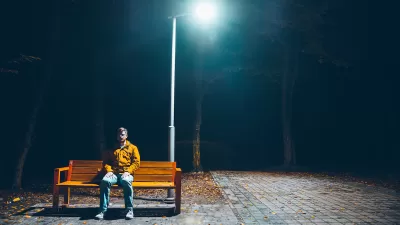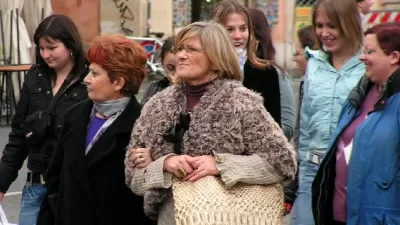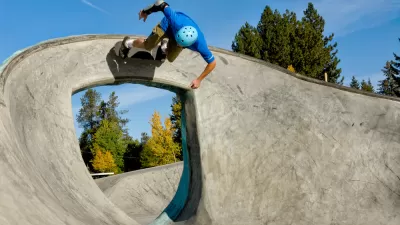Residents of big cities, known as the ‘melting pots’ of America, have fewer interactions with people outside their socioeconomic group than those in smaller communities, according to new research.

In a piece for Stanford News, Laura Castañón outlines the results of a study that sought to measure how much people of different socioeconomic classes interact with each other in cities of various sizes. “Using cellphone data, a collaboration of researchers led by Stanford University determined that most people in big cities have very few opportunities for even brief interactions with those outside their own socioeconomic status.” This stands in contrast to rural areas, where people are more likely to interact with others outside their demographic.
Professor Jure Leskovec explains the disparity, saying, “In New York, you can spend $10 on a dinner or $1,000 on a dinner, whereas if you live in a place with only one diner, everyone goes there, rich or poor. That seems to be the main mechanism for this phenomenon.”
The study’s authors say this points to a need for policymakers and urban planners to promote interaction and diversity through conscious design choices. “Looking at large cities, the researchers found that those that placed frequently-visited hubs in between different neighborhoods – instead of in the center of each neighborhood – were less segregated.” The authors suggest that cities can use this data to understand where new quasi-public and public spaces could provide the most opportunities for social interaction and guide future development.
FULL STORY: Big cities foster socioeconomic segregation. Here’s how we can fix that

Alabama: Trump Terminates Settlements for Black Communities Harmed By Raw Sewage
Trump deemed the landmark civil rights agreement “illegal DEI and environmental justice policy.”

Study: Maui’s Plan to Convert Vacation Rentals to Long-Term Housing Could Cause Nearly $1 Billion Economic Loss
The plan would reduce visitor accommodation by 25% resulting in 1,900 jobs lost.

Planetizen Federal Action Tracker
A weekly monitor of how Trump’s orders and actions are impacting planners and planning in America.

Waymo Gets Permission to Map SF’s Market Street
If allowed to operate on the traffic-restricted street, Waymo’s autonomous taxis would have a leg up over ride-hailing competitors — and counter the city’s efforts to grow bike and pedestrian on the thoroughfare.

Parklet Symposium Highlights the Success of Shared Spaces
Parklets got a boost during the Covid-19 pandemic, when the concept was translated to outdoor dining programs that offered restaurants a lifeline during the shutdown.

Federal Homelessness Agency Places Entire Staff on Leave
The U.S. Interagency Council on Homelessness is the only federal agency dedicated to preventing and ending homelessness.
Urban Design for Planners 1: Software Tools
This six-course series explores essential urban design concepts using open source software and equips planners with the tools they need to participate fully in the urban design process.
Planning for Universal Design
Learn the tools for implementing Universal Design in planning regulations.
Caltrans
Smith Gee Studio
Institute for Housing and Urban Development Studies (IHS)
City of Grandview
Harvard GSD Executive Education
Toledo-Lucas County Plan Commissions
Salt Lake City
NYU Wagner Graduate School of Public Service





























